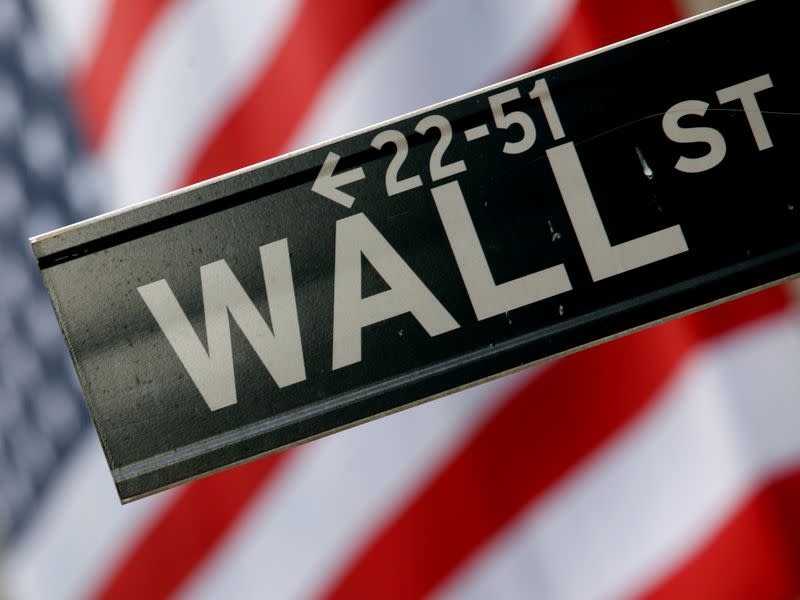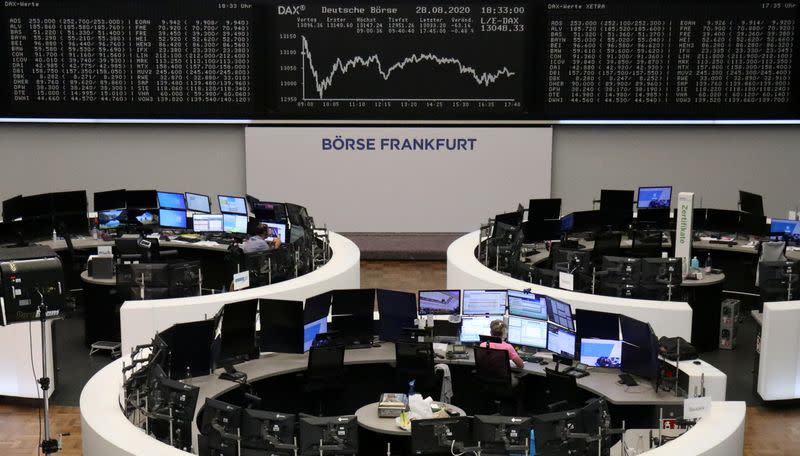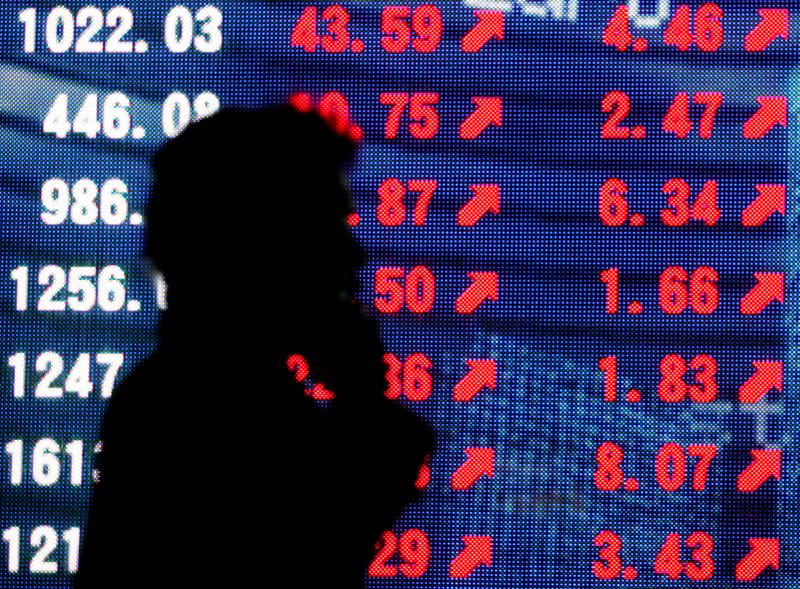Equities edge higher as political concerns weigh on sentiment
By David Randall
NEW YORK (Reuters) - Global equities treaded water and U.S. government bonds edged higher on Friday as investors weighed better-than-expected corporate earnings and increased M&A activity in Europe against political concerns ranging from the U.S. elections to Brexit.
Growing fears over a messy no-deal Brexit dragged sterling to 5-1/2-month lows after the European Union told Britain it should urgently scrap a plan to break their divorce pact.
"Most of the risks faced by markets for the rest of the year are political, so around the U.S. election, the UK government's exit from the EU and U.S.-China tensions," said Francois Savary, chief investment officer at Swiss wealth manager Prime Partners.
"As people take a step back to assess these risks, we're in this consolidation, holding pattern, which was needed as markets aren't cheap at the moment."
MSCI's gauge of stocks across the globe <.MIWD00000PUS> gained 0.10% following modest gains in Europe and Asia. Japan's Nikkei <.N225> rose after Tokyo dropped its coronavirus alert by one notch from the highest level as COVID-19 cases trend down.
European indexes were bolstered after telecoms and cable group Altice Europe <ATCA.AS> said its founder had offered to take the company private, sending its shares up more than 24%.
On Wall Street, the Dow Jones Industrial Average <.DJI> rose 131.06 points, or 0.48%, to 27,665.64, the S&P 500 <.SPX> gained 1.78 points, or 0.05%, to 3,340.97 and the Nasdaq Composite <.IXIC> dropped 66.05 points, or 0.6%, to 10,853.55.
Shares of cloud services company Oracle Corp <ORCL.N> and exercise bike maker Peloton Interactive Co <PTON.O> both jumped after better-than-expected earnings but later pared their gains.
The NYSE Fang+ index of big 10 tech companies <.NYFANG> lost 5.6% for the week in its biggest weekly decline since March.
Still, the index has more than doubled from its March trough, and investors have gathered that high valuations are justifiable in light of near-zero interest rates in much of the developed world and the massive liquidity the world's central banks have created.
Many investors have said the sell-off was a healthy correction.
Yet, with the world's stocks still trading near the most expensive levels relative to the profit outlook since the 2000 tech bubble, some analysts called for caution.
"Global shares had rallied on expectations of economic recovery from lockdowns. But as the autumn begins (in the northern hemisphere), people wonder if coronavirus infections could worsen," said Kozo Koide, chief economist at Asset Management One.
The European Union is ramping up preparations for a tumultuous end to the four-year Brexit saga after Britain explicitly said this week it plans to break international law by breaching parts of the Withdrawal Agreement treaty signed in January.
The dollar index <=USD> fell 0.104%, with the euro <EUR=> up 0.26% at $1.1844.
Benchmark 10-year U.S. Treasury notes <US10YT=RR> last rose 5/32 in price to yield 0.6674%, from 0.684% late on Thursday.
U.S. crude <CLc1> recently rose 0.56% to $37.51 per barrel and Brent <LCOc1> was at $39.96, down 0.25% on the day.
(Reporting by David Randall; Editing by Nick Zieminski, Tom Brown and Dan Grebler)




